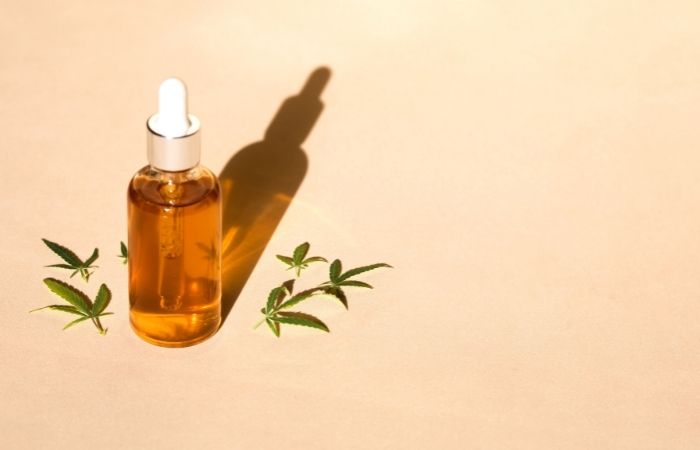If you’ve shopped for CBD products before, you may have seen products tagged CBD oil and CBD tincture. There are different CBD products available. Sometimes, it’s hard to keep up with terminologies.
In this article, we’ll compare CBD oil vs. CBD tincture. Not all CBD oils are tinctures. Also, not all CBD tinctures are CBD oils. You’ll learn about their major differences to help you choose which one of them is better for you.
Also, read on to find our tips on how you can find top-quality CBD products. Whether you decide to use CBD oil or a CBD tincture, the most important thing is to use a quality product.
Table of Contents
What is CBD?
Cannabidiol, popularly called CBD, is one of the many chemical compounds in cannabis plants. These chemical compounds are known as cannabinoids.
CBD used in major CBD products today comes from hemp plants. Hemp is a strain of cannabis that contains trace amounts of tetrahydrocannabinol (THC). THC is the compound that makes a user feel high.
Although THC has intoxicating effects, CBD does not. So, CBD will not make you feel high. Rather, studies show it has different therapeutic effects.
The Endocannabinoid System and CBD
The endocannabinoid system plays a crucial in our body. It maintains balance by regulating physiological processes, such as mood, pain, and immune function. CBD interacts with this system to produce different therapeutic effects.
How Do You Take CBD Oils and Tinctures?
After you choose the right CBD products to reduce your pain, insomnia, anxiety, etc., how do you use them?
You take CBD oils and CBD tinctures the same way – sublingually. Place a few drops under your tongue and hold them for about 60 seconds before swallowing. This sublingual method of taking CBD allows it to enter your bloodstream faster. You can also put oils and tinctures into your food or drinks.
In addition, there is no official guideline on the dosage of CBD oil or CBD tinctures to use. The general advice is to start from a low dose and gradually increase it as you go.
Differences between CBD oil and CBD Tincture
Let’s look at CBD oil vs. CBD tincture. Here are key differences that will help you make a decision.
Ingredients
CBD tinctures tend to have more ingredients than oils. Typically, CBD oil contains only hemp extract and carrier oil. Sometimes, the company may add flavoring. A CBD tincture generally has added ingredients like sweeteners, flavoring, or vegetable glycerin.
Base
CBD tinctures only have alcohol as the base, while CBD oils have an oil base. Some premium oils such as CBD oil for pain may contain a mixture of essential oils like sunflower seed oil or hemp seed oil as the main base.
Manufacturing Method
The primary difference between CBD oil vs. CBD tincture is the manufacturing method. For CBD oil, the manufacturer uses CO2 or ethanol extraction methods to remove CBD from the plant. However, for tinctures, they soak the hemp in alcohol.
Taste
CBD tinctures typically contain sweeteners and flavoring. So, they have a more delicious taste than unflavored CBD oils.
Price
The price of CBD products depends on various factors, such as extraction method and strength. Generally, high-quality CBD oil tends to cost more than a tincture.
Shelf Life
Because CBD tinctures have an alcohol base, they have a longer shelf life than CBD oils. The alcohol helps preserve the solution for a long time. So, they can stay for about 3 to 5 years.
How to Find Quality CBD oil or Tincture
The FDA doesn’t regulate CBD products the same way it does supplements. So, it’s essential to shop wisely and with caution. There are some things to consider for CBD oil to relieve your pain or health conditions.
Regardless of which CBD product you choose, always find a reputable CBD brand. The company should have an accessible Certificate of Analysis (COA) that shows the following:
Potency
Usually, the product label should have the total CBD in the bottle. Potency tells you the level of cannabinoids a product contains. Make sure that the level of CBD on the label matches what the COA says.
Cannabinoid Profile
Full-spectrum CBD products contain CBD, other compounds, and a trace amount of THC. The level of THC shouldn’t be above 0.3%. Broad-spectrum CBD should contain CBD, other cannabinoids, and no THC. CBD isolate products should have only CBD.
Contaminants
Every CBD brand should conduct in-house tests and third-party tests that verify the purity of its products. The reports from these tests should show that the CBD product is free from contaminants. Check and ensure no heavy metals, toxins, mold, pesticides, and other harmful chemicals are present.
Safety and Side Effects
At this moment, CBD is considered to have a good safety profile. It’s also well-tolerated. Some people may notice some side effects, such as:
- Dry mouth
- Changes in appetite
- Fatigue
- Diarrhea
- Changes in weight
Also, CBD may interact with certain prescription medications. It’s best to talk with your doctor before taking CBD.
The recommended CBD oil for pain relief and inflammation, insomnia, and other conditions are from top brands.
There are hundreds of CBD companies coming up every other day. Stay safe by buying from companies that have made a name in the industry.
The Bottom Line
CBD oil and CBD tinctures are similar products. They both contain the same active ingredient, and you use them the same way. A primary difference between them is in the production process and method.
The product you choose between CBD oil vs. CBD tincture boils down to your personal preference.
Also, if you can’t stand unflavored CBD oil, go for a tincture with some flavoring. But, if you’re sensitive to alcohol, you can opt for CBD oil.
Overall, everyone responds differently to CBD. Sometimes, you may have to experiment with both and choose the one that works for you.


